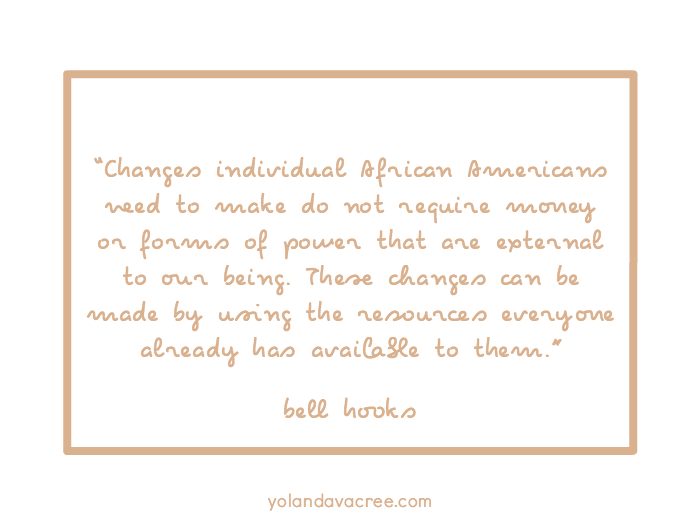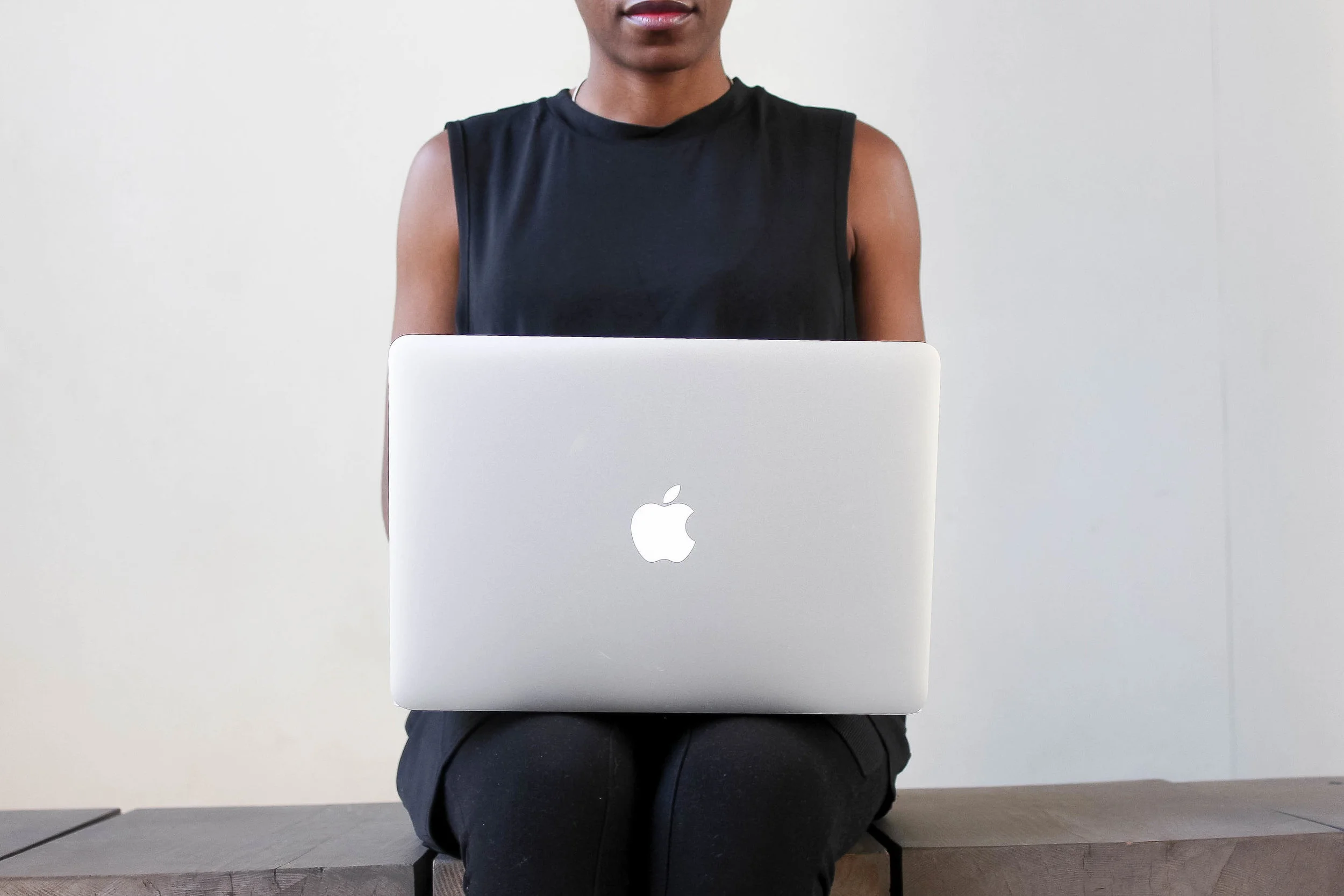Black Minimalist Icon: bell hooks
When I first started thinking about minimalism and its connection to black liberation, I searched for thought leaders who could articulate what I was feeling. I came upon bell hooks’s chapter in Black Genius: African American Solutions to African American Problems, titled “Simple Living: An Antidote to Hedonistic Materialism” and I knew I had struck black gold.
To celebrate black history month and women’s history month, I would like to acknowledge bell hooks. A scholar, activist, and author who examines the intersections of race, gender, class, and education in a "white supremacist, capitalist patriarchy" aka the U.S.
This post is merely to introduce hooks as a black minimalist scholar and icon. Yes, I’m claiming her for our cause!
Below, I have pulled out a few quotes from her work and offered my thoughts.
From the chapter:
“I began to look at other African Americans, cross class, and to think about how much pain I saw in their daily lives, how much stress and mental delusion are caused by constant feelings of lack. We who are privileged spread the message to the less privileged that their lives have no meaning if they do not have the freedom to fulfill hedonistic desires for material goods. The black women and men I talk to who live in housing projects keep saying they want things endlessly because they feel that things will make them somebody and give them the value they feel they do not have.” (138-139)
What hooks observed and what is still occurring today in many black communities, echoes the national trend of excessive materialism; however, the history of black economic exploitation makes this examination particularly crushing.
“Were the masses of black people to embrace the philosophy of living simply as a way of countering the genocidal abuse in our lives fostered by imperialism, white supremacy, and capitalism, we would also be uniting our struggle with that of most of the people on the planet who are daily grievously victimized by the material excess of this society.” (143)
The struggle for black liberation is not occurring in a vacuum and throughout the history of black liberation movements, we have linked our struggles to the global human struggle for freedom. Having said that, we can not fail to acknowledge the impact and contribution our materialism has played in the suffering of the global community.
After finding that piece, I also read a couple of her other works, Rock My Soul: Black People and Self Esteem and Ain't I A Woman: Black Women and Feminism where she continues to discuss the need for us to divest from the myth of the American Dream and embrace a simple lifestyle for our spiritual and emotional well-being.
From Rock My Soul:
“When the seventies ended, it was popularly accepted that material goods and acquisition of power within the existing structure of our society was more attainable than freedom… Rather than worry our minds and hearts about social justice, anti-racist struggle, women’s liberation, the plight of the poor, or the failure of democratic principles, black people were urged to see consumption as a way to define success and well-being.” (10-11)
The first sentence of that quote is particularly conflicting for me. Are we wrong for wanting to get our slice of the American pie and use our talents to achieve? On the other hand, what have we gained by participating in the system?
Black wealth is still 13 times less than white wealth even though we have high rates of college completion and entrepreneurship, with black women leading those categories.
“Confronting chronic emotional pain in black life is the terrain of political resistance we must now explore, the new revolutionary frontier- mental health, emotional well-being.” (159)
“Changes individual African Americans need to make do not require money or forms of power that are external to our being. These changes can be made by using the resources everyone already has available to them.” (206)
I have been saying this and I’ll keep saying it. This is a spiritual journey. I’m not just referring to minimalism, but our liberation too. The passion that we have for justice springs from so much pain. To be truly radical, we have to confront the pain of injustice and heal. It starts internally with each individual. Minimalism is a tool that can help us heal ourselves, our families, and our communities.
I encourage you to dig more into bell hooks’s work. She also has some great live discussions on Youtube. There is a lot to unpack and she provides a great foundation for understanding the political, spiritual, and socio-economic factors of our struggle for freedom and how simple living can liberate us.
Who has influenced your thinking on black minimalism? What other thought leaders should we check out?


